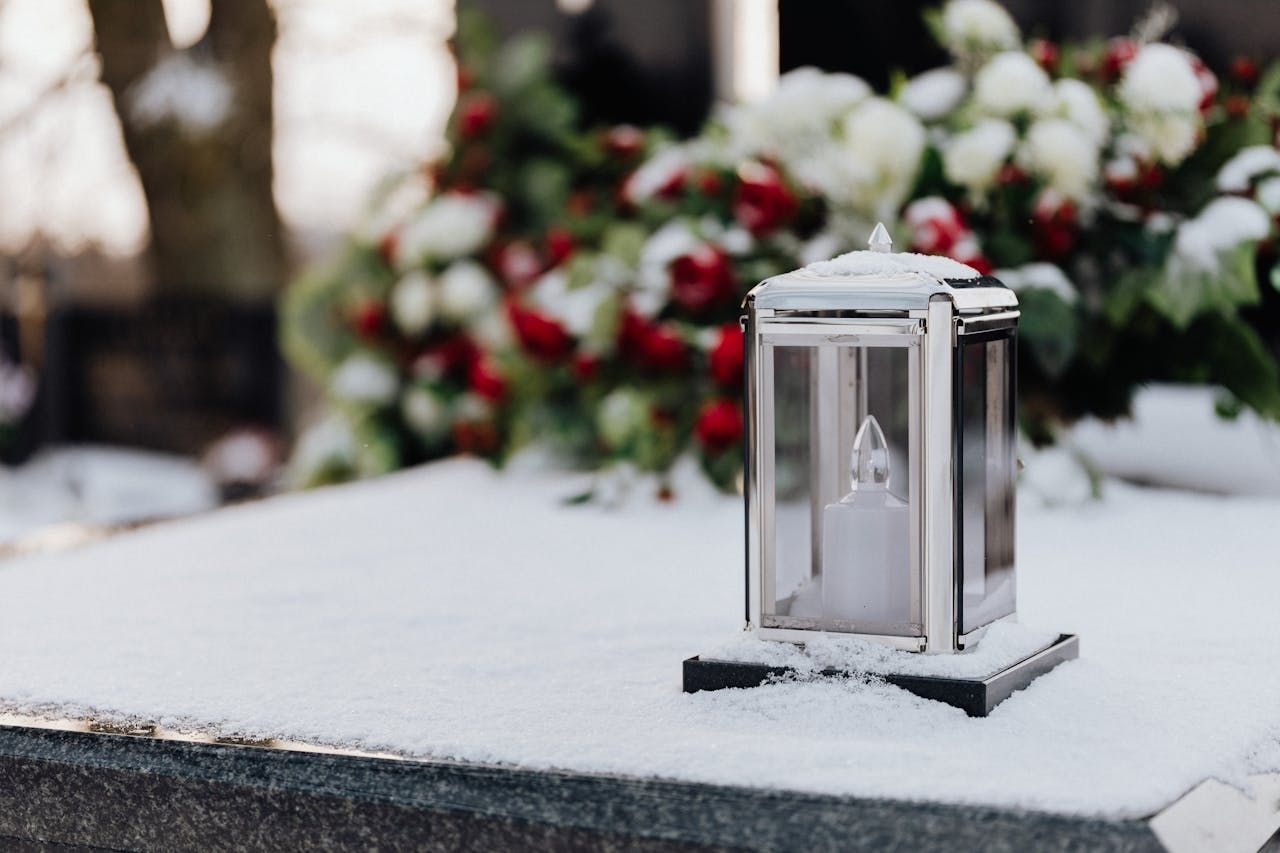What to Write in a Sympathy Card or Condolence Letter

When someone loses a loved one, it can be difficult to know the right thing to say, whether in person or in writing. While you want to express your condolences, you may be nervous that you will say too much or too little, or say the wrong thing entirely. In truth, as long as you are expressing heartfelt sympathy, your message is likely to be well-received by the bereaved. To help you get started, however, we would like to offer some tips and examples.
Deciding on a Message to the Bereaved
Maybe you are writing a message in a sympathy card or to be sent with flowers. In that case, you can keep it relatively short. Decide whether you want to write about a favourite memory of the person who has died, or simply express your condolences to those who are grieving.
Do not shy away from addressing the death. It may seem insensitive to mention it, but it is actually an important thing to do. When you acknowledge the death of someone’s loved one, it gives the bereaved person the freedom to talk about it with you. This could be the most important gift you could give a grieving person. Whatever you decide to write, steer clear of advice like, “Try to think positively” or empty platitudes like “He’s gone to a better place”. Never say that you know how the person feels, or that everything happens for a reason. Keep your message sincere, even if it is brief.
If you can offer practical support, express that in your note. Offering help is a much better option than offering advice. You can mention the funeral if you would like, either to say whether you will be attending or to mention what a lovely service it was, depending on when you send the note.
Sample Condolence Note
In a sympathy card, you can write a brief note, just a few sentences long, that touches on the loss and expresses your sympathy. While there will already be a message in the card, your personal note will mean much more to the person who is grieving a loved one. For example, you might write something like:
Dear Roberta,
I was so sorry to hear of Harold’s passing. I know how much he meant to you, and what a well-respected figure he was in the community. Although I did not know him well, I remember him as someone who was always kind, friendly, and cheerful. He will truly be missed. Please let me know if there are any errands I can run for you, or if you would like to meet to simply talk.
With deepest sympathy,
Alice
On the other hand, if you are simply writing a note to be enclosed with a floral arrangement, you can express your sentiments much more succinctly. It can be a sentence or two, or even a poignant phrase. Some examples of appropriate messages to include with funeral flowers include:
- With our deepest sympathy
- In loving remembrance
- We are sincerely sorry for your loss
- With condolences
- Wishing you comfort in this difficult time
If you would like to say something a little bit more personal, but still shorter than a sympathy card, here are some good examples:
- I am so sorry for your loss. Please let me know if there is anything at all that I can do for you.
- May the memory of your loved one, and the love of those who remember with you, bring you comfort and healing.
- We offer our condolences and want you to know that we are thinking of you and your family during this time of sorrow.
How to Sign Off a Sympathy Card
How you sign a sympathy card depends in part on how well you know the bereaved person. If you are very close, you could sign the card with “love” or “all my love”. Otherwise, an appropriate way to sign off on a sympathy card could be something along the lines of “with caring thoughts” or “with sincere sympathy”.
Deciding to Write a Sympathy Letter
How you sign a sympathy card depends in part on how well you know the bereaved person. If you are very close, you could sign the card with “love” or “all my love”. Otherwise, an appropriate way to sign off on a sympathy card could be something along the lines of “with caring thoughts” or “with sincere sympathy”.
Deciding to Write a Sympathy Letter
Sometimes, you may want to write a letter rather than simply sending a card. Particularly if you knew the person who died, or you were close to the family, you might find that you have more to say than can be sent in a brief note. If you decide to go this route, here are some guidelines to follow:
- Address the letter to everyone . Begin with “Dear” and then list the names of all of the family members in the household, if possible.
- Begin the letter with sympathy . Offer your condolences, letting them know how sorry you are for their loss.
- Talk about the person who has died . Mention the person’s good qualities, and what you appreciated about him or her. It will bring the family comfort to know that their loved one was well-regarded. If you did not know the person well, you could reflect on nice things other people have said, or his or her reputation in the community.
- Share a story or a memory . It can be a comfort to the family to hear a story they had not previously heard, so share a cherished memory if you can.
- Mention any support you can offer . If you can help or offer support in the weeks and months to come, say that in your condolence letter. You might offer to bring a meal, help with gardening, or look after the children, or you might simply offer to be a listening ear.
Letter of Condolence Examples
While every letter of condolence will be different, there will be a certain level of continuity. Your letter should be personal and heartfelt, with the goal of offering comfort to the person who has lost a loved one. You can find letter of condolence examples online, and we have one here for you to consider, as you think about what you would like to say.
Dear Wendy, Ben and Sarah,
I was saddened to hear of Pete’s passing, and my thoughts are with you and your family. He was such a lovely, caring person, and he will be deeply missed by all who knew him. His selfless nature and his dedication to volunteering in the community made him beloved by all, and I was so honoured to be counted among his friends.
I will never forget the first time I met Pete. I was a newcomer, and very nervous, but he instantly put me at ease and made me feel welcome. His big, booming laugh always lifted the spirits of everyone around him, his sense of humour was priceless, and he lit up every room when he walked into it. His kindness to me and my children will stay with us forever, and we are grateful to have known him.
The funeral was such a beautiful tribute to his life. I wonder if he knew how many people would pack the room, and how many lovely things would be said about him. His generosity of spirit was apparent in the stories that were told about him that day.
If you need anything at all, please know that I am here. I would love to bring by a meal sometime when it is convenient to you. I am also here if you simply need someone to listen.
Much love and caring thoughts,
Margaret
Trust Bridgwater Funeral Services with Your Grief
Founded in 2002 by Nigel Gillard, Bridgwater Funeral Services Limited , in the centre of Bridgwater, Somerset, is a family business that provides personal service 24 hours a day, 7 days a week. Traditions both old and modern are honoured here, with Green and Woodland burials, horse-drawn funerals, military funerals, and services in all religious denominations as well as non-religious and humanist life celebrations. We also offer low-cost funerals and Golden Charter pre-paid funeral plans. If you need help planning a funeral and want to learn more about our services, contact us through our website for information and resources.


